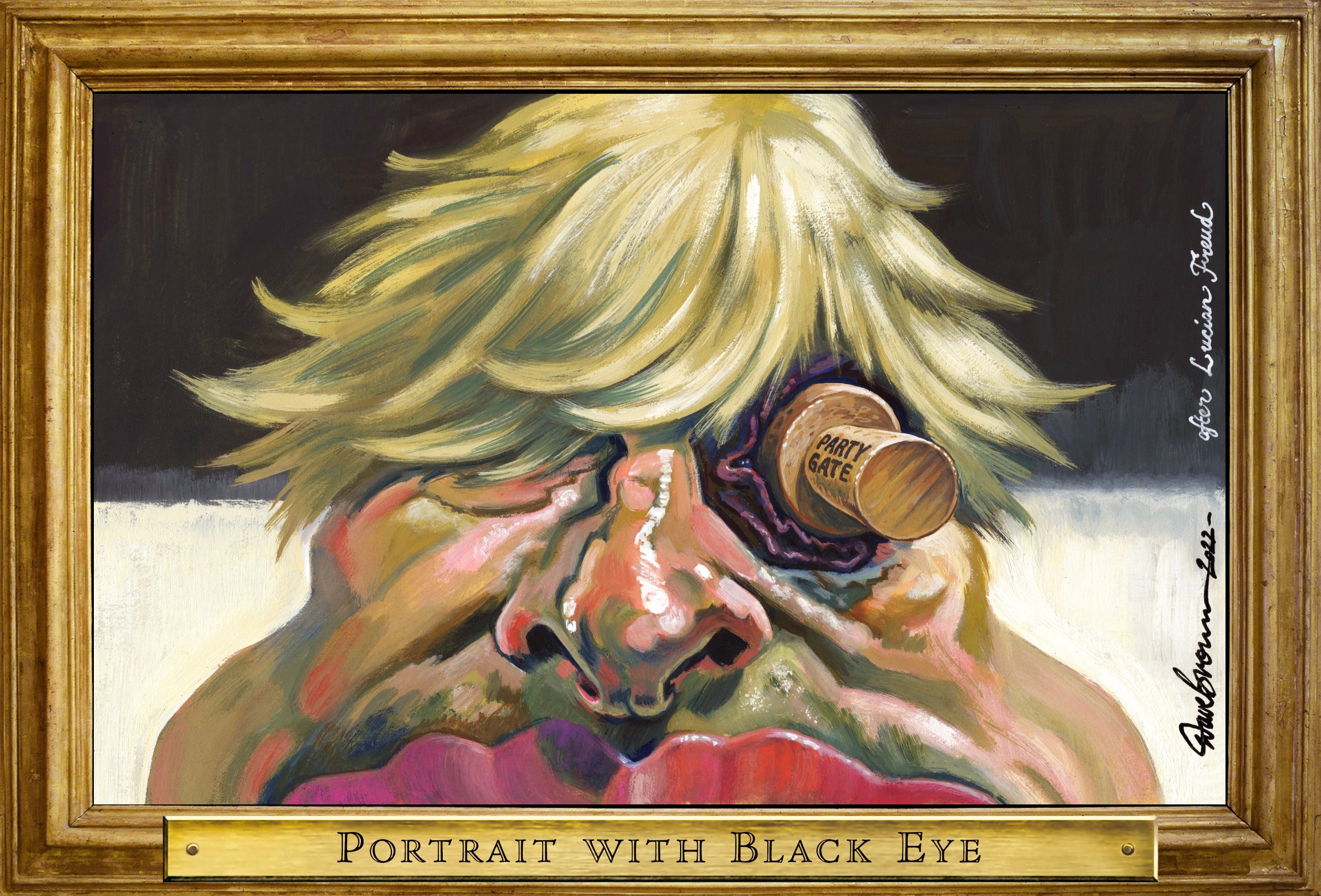Even with “Beergate” being given an unlikely second bite of the bhaji, Boris Johnson remains the party leader who is in the greatest jeopardy.
Sir Keir Starmer will be embarrassed by the announcement of further enquiries by Durham Police; but it doesn’t necessarily mean that he did anything wrong, and he maintains that he did not. For obvious reasons it would be helpful if the police could complete their work rapidly, so that the Labour leader can “get on with the job”, as the phrase goes, of holding the government to account. It is hard to imagine him lecturing the prime minister about probity at the moment, although he insists no rules were broken.
It is too easily forgotten how fast things had gone wrong for Mr Johnson even before that video of a hapless Allegra Stratton in a mock press conference emerged – before the prime minister first told the Commons that there had been no parties, and that no rules had been broken. That is, before the collection of criminalities known as Partygate came into play, and after the prime minister had been in trouble over sleaze, and over a sense of drift and missed opportunities, Brexit-related and otherwise.
Indeed, had the public laughed off all of the law-breaking partying that took place in Downing Street during the lockdowns, the government would still have lost votes in these local elections thanks to the cost of living crisis, sleaze, inflation and migration. In other words, even if he had never been Boris Johnson, the PM would still be in trouble, if less dramatically (and offensively).
Unlike Sir Keir, Mr Johnson is also “charged” with deliberately misleading parliament, which could entail his expulsion, effectively, from the Commons.
The big political picture is painted in the BBC’s official projected national share of the vote. This shows that the Labour Party has climbed out of its nadir at the last general election, when things seemed bleak indeed for Labour. However, it has only made it to 35 per cent, which may offer hope but is hardly the equivalent of a landslide shift in public opinion. The voters are beginning to listen to Labour again, but not in all parts of the country.
More striking is the Conservatives’ collapse. It is bewildering, but true, that the leader who took the party to a 12-point lead over Labour and an 80-seat majority has now overseen a decline in its share to a mere 30 per cent of the vote. It chimes perfectly with the anecdotal evidence: that Tory voters, old and new, are so disaffected about living standards and sleaze that they stayed at home, or voted Liberal Democrat, Green or independent – but that they are not yet ready to commit to Labour. That would be asking rather more of them.
To keep up to speed with all the latest opinions and comment, sign up to our free weekly Voices Dispatches newsletter by clicking here
The Conservatives will also have cause for concern over the Liberal Democrat revival, the resilience of the SNP, and a Scottish Labour Party that looks once again as if it might be a contender. The effect of a strong performance by the Lib Dems and the SNP will be the loss of Conservative seats to them, and, by depressing the Tory vote, to Labour as well. Tactical voting may well grow as the next election approaches, and could make a significant difference, as it did in 1997. No pacts are required to persuade people who are driven by the fear of a Conservative government to vote for the party best placed to remove it.
The West Country and home counties were, not so long ago, Liberal Democrat heartlands, and only lost after the perceived (at least) betrayals of the Cameron-Clegg coalition, notwithstanding the work the Liberal Democrats did in the national interest. Today there must be no question of them supporting another Conservative administration, whether led by Mr Johnson or not. As someone who served in the coalition cabinet, Sir Ed Davey is in a good position to atone for past errors of judgement.
As the cost of living crisis intensifies, with rising inflation and interest rates, that negativity will only grow. There is, as it happens, in many traditionally strongly Conservative constituencies, no personality more likely to drive a floating voter into such a state of determination than Mr Johnson, whose name is synonymous with Brexit and sleaze.
He is certainly not the asset he once was.




Join our commenting forum
Join thought-provoking conversations, follow other Independent readers and see their replies
Comments